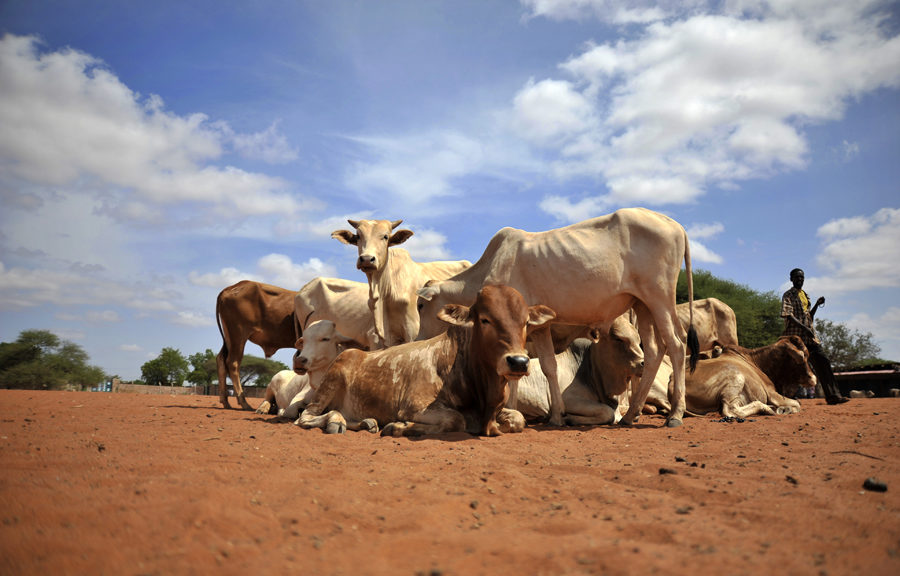Mexico kicked off 2017 with a 20 percent spike in gasoline prices, driven in part by the phasing out of subsidies. Some consumers set fires at gas stations—a response that highlights the backlash countries can face as they stop subsidizing carbon-based fuels and start encouraging climate-friendly alternatives. Now the Mexican government and stock market are experimenting with a gentler tool for discouraging carbon emissions: cap-and-trade. Mexico, which in 2012 passed the developing world’s first climate law, is well placed to set an example for other developing economies looking to shrink their carbon footprints.
Continue reading Emission Permission
Category Archives: Formats
How Kenya’s herders got their livestock insured
When the rains failed to come last year in central Isiolo County, Kenya, Mohamed Dahir figured he might lose 40% of his herd of 400 sheep and goats. Like several million other pastoralists in northern Kenya and across the border in Somalia and Ethiopia, Dahir and his herd live migrating between pastures.
Dahir did indeed lose some animals, but he received a payout from an emerging kind of livestock insurance: based on predictions of vegetation growth in the area and how many animals that might harm, his index-based livestock insurance policy gave him 50,000 Kenyan shillings (about £370) in cash before the drought and its consequences really settled in. He was able to buy enough hay from distant counties to save 95% of his herd. Continue reading How Kenya’s herders got their livestock insured
Interview with Rob Fredrick for American Scientist
Rob Fredrick at American Scientist interviewed me for a podcast he made on one of the talks at the European Conference for Science Journalists in Copenhagen. I told him about my 2009 Nature story “Fake Facebook pages spin web of deceit” and we discussed the talk.
See also my story on the Copenhagen talk for IEEE Spectrum: https://lucaslaursen.com/how-bots-win-friends-and-influence-people.
Fredrick’s story and podcast here: https://www.americanscientist.org/blog/from-the-staff/computational-propaganda
German breeders develop ‘open source’ plant seeds
There’s open-source software, open-source pharma research, and open-source beer. Now, there are open-source seeds, too. Breeders from Göttingen University in Germany and Dottenfelderhof agricultural school in Bad Vilbel, Germany, have released tomato and wheat varieties under an open-source license. Their move follows similar schemes for sharing plant material in India and the United States, but is the first that provides legal protection for the open-source status of future descendants of plant varieties. Continue reading German breeders develop ‘open source’ plant seeds
